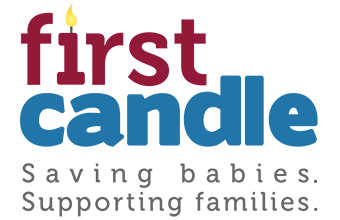If someone you care about has a baby die of stillbirth, SIDS or other cause of sudden infant death, there are things that you can do to help him or her through the grieving process and cope with the death of their baby. The avoidance by friends and family, unsure of what to say or do, only adds to the pain and isolation felt by parents. The following suggestions are offered to assist you:
|
DO’s
|
DON’Ts
|
- Do get in touch. Let your genuine concern and caring show.
- Do be available to listen, to help with the other children, or whatever else seems needed at the time. Offer help with practical matters like house cleaning and meals.
- Do say you are sorry about what happened to their baby and about their pain.
- Do allow them to express as much grief as they are feeling at the moment and are willing to share. Accept silence; if the family doesn’t feel like talking, don’t force conversation. Follow their lead.
- Do encourage them to be patient with themselves, not to expect too much of themselves and not to impose any “shoulds” on themselves.
- Do allow them to talk about their baby.
- Do give special attention to the siblings of the baby that died.
- Do reassure them that they did everything that they could, the medical care their baby received was the best, or whatever else you know to be true and positive about the care given their baby and/or pregnancy.
- Do encourage them to seek outside help, either from a health professional or another bereaved parent.
- Do remember the family on the baby’s birthday, anniversary of death, Mothers Day, Fathers Day and other occasions. Permanent memorials, such as the First Candle Tree of Hope, help families know that their baby has not been forgotten.
- Do be patient with them. Coping with the death of their baby may take a long time. Stay in touch.
|
- Don’t let your own sense of helplessness keep you from reaching out to the bereaved family.
- Don’t avoid the family because you are uncomfortable.
- Don’t say you know how they feel (unless you’ve lost a child yourself, you probably don’t know how they feel.)
- Don’t probe for details about the baby’s death. If the family offers information, listen with understanding.
- Don’t tell them what they should feel or do. Don’t impose your religious or spiritual views on them.
- Don’t change the subject when they mention their dead baby.
- Don’t point out that at least they have another child; or could have more children in the future.
- Don’t blame anyone for the death. Don’t make comments which suggest that the care in the hospital or emergency room, at home, at the childcare provider’s or wherever was inadequate.
- Don’t try to find something positive about the baby’s death. Avoid clichés and easy answers.
- Don’t avoid mentioning the baby’s name out of fear of reminding them of their pain.
- Don’t say “you ought to be feeling better by now” or anything else which implies a judgment about their feelings, or sets time expectations or limits their healing process
|

